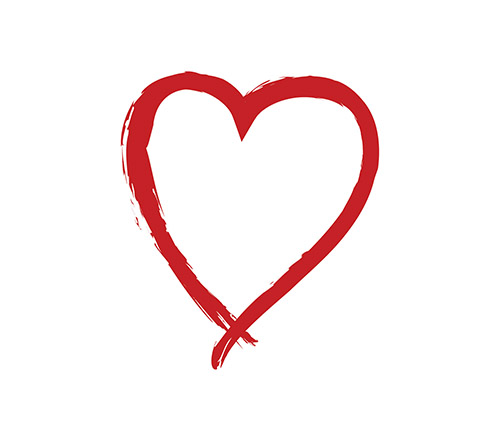
During the past few years I have perused the advertisements in our community’s wonderful weekly publications. Based on those advertisements, I have come to a realization of the ideal manner in which a person in our community should spend his year. I may have missed some events, so don’t take any omission to mean they shouldn’t be on this list:
In September one should go to the Hidabroot convention weekend in Connecticut where he can enjoy Elul inspiration.
Rosh Hashanah is spent in Uman by the kever of Rav Nachman. Then one should fly off to Eretz Yisrael where he will spend a lofty Yom Kippur and Sukkos at the holy places and visiting gedolei Yisrael.
A few weeks after returning home, he should return to be at Kever Rachel on Rachel Imainu’s yahrtzeit, and perhaps stick around a few days so he could be in Chevron for Parshas Chayei Sarah. The Shabbat Project hosts a weekend at the end of October in Stamford, which cannot be missed.
Of course, one should attend the entire Agudah Convention during Thanksgiving weekend.
For the final week of the secular year, the Nefesh conference for mental health professionals is a must. New for this year one can travel to the kever of the Ba’al HaYanya on his yahrtzeit, and to the kever of Rav Shayala Kerestirer on his yahrtzeit. The yarchei kallah in the Mir in Yerushalayim is an incredibly inspiring event where one can recapture some of the spiritual magic of his yeshiva days.
Shabbos Parshas Va’eira is the Ohr Naava convention, followed by the Dirshu convention the next week, Shabbos Parshas Bo.
Shabbos Shira and Tu B’shvat should be back in Eretz Yisrael where one can attend the tish of a rebbe or two. Parshas Mishpatim is the Keravtuni shabbaton.
If one’s children attend a Modern Orthodox yeshiva, he should bring his family down south for yeshiva week where they will enjoy water sports and hot weather in a posh hotel with a daily Daf Yomi shiur. If he’s in Miami, he or his wife might also run in a marathon for tzedakah. If one’s children attend more yeshivish yeshivos he should bring his family to a fancy hotel down south the following weekend, and only stay from Thursday to Sunday night.
At the end of Adar, he should head off to Lizhensk for Reb Elimelech’s yahrtzeit. Pesach can be spent at Gateways or one of the other upscale hotels that provide incredible programs, featuring the most elite speakers and entertainment our community has to offer.
The Chofetz Chaim Heritage Foundation weekend and the Project Inspire weekend are both incredible, and of course he can’t miss the Torah Umesorah Convention during Memorial Day weekend.
Shavuos with Greenwald Caterers is an amazing experience. Then Tisha B’Av must be spent back at the Kosel, followed by a special Shabbos Nachamu event in the Crowne Plaza.
What a year!
Before I continue, please don’t misunderstand the point of this article. I am absolutely not discounting the importance, value and incredible chizuk that can be gleaned from the various shabbatons and events listed above. They are each beautiful events that spiritually (and physically) elevate all those lucky enough to be in attendance. They are all extremely inspiring and enjoyable experiences, and anyone who is able to attend such a weekend will not regret it.
But I doubt I’m the only one who sometimes feels remiss that I am unable to afford to attend these events, each of which costs a considerable amount. For the masses who struggle mightily to pay tuition, send their children to summer camp, and afford daily life in our community, most of these wonderful events are beyond their means.
Not only do we need constant chizuk, but we often need chizuk about getting, or not getting, chizuk. We need to remember that ultimately chizuk comes from within—based on what we choose to internalize and focus on. While momentary chizuk is easier to glean from beautiful and heartwarming events, lasting chizuk is dependent on the efforts of the recipient.
Chizuk is potentially all around us if we are seeking it. The rabbanim in our communities expend much effort each Shabbos to deliver powerful messages in their drashos. Sometimes we can gain chizuk from a comment or from an event that happens. It’s all in how we view life around us.
I would love to have the opportunity to attend more of the events mentioned above, and those who are fortunate to attend should appreciate the opportunity. But for the rest of us, we should not be discouraged that we cannot take part. Although the ads in the local Jewish papers may unwittingly make us feel that our lives are incomplete, and our Judaism is remiss if we aren’t there, that is hardly the truth.
Chizuk is in the heart of the beholder!
By Rabbi Dani Staum, LMSW
Rabbi Dani Staum, LMSW, is a rebbe and guidance counselor at Heichal HaTorah in Teaneck, NJ, principal at Mesivta Ohr Naftoli of New Windsor and a division head at Camp Dora Golding. He can be reached at [email protected]. Looking for “Instant Inspiration” on the parsha in under five minutes? Follow him on TorahAnytime.com.













